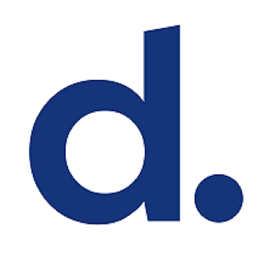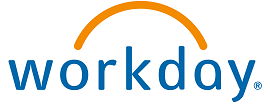- Best overall compensation management software: Rippling
- Best standalone compensation management software: Aeqium
- Best PEO solution: Justworks
- Best free HR solution: Deel
- Best for big businesses: Workday
- Best DEI insights: Decusoft Compose Suite
With compensation management software, businesses can better assess their employees’ pay rates, benefits and performance, effectively ensuring their organization is both competitive and internally equitable. Common compensation management solutions include standalone compensation-specific software, plus comprehensive payroll, HR, HRIS or HCM solutions that bundle compensation management with a host of other tools.
For businesses that want an all-in-one people management platform with plenty of room for growth, we recommend Rippling’s compensation management tool. For standalone software from a company focused specifically and solely on compensation, we recommend Aeqium.
Keep reading to learn more about our top compensation management options, including Rippling, Aeqium and a host of other options for businesses of all sizes.
Jump to:
- Top compensation management software: Comparison table
- The best compensation management software for business
- Our methodology
- How do I choose the best compensation management software?
- Frequently asked questions
Top compensation management software: Comparison table
| Starting price | Free trial | Employee benefits options | International compensation management | Learn more | |
|---|---|---|---|---|---|
| Rippling | Custom | None listed | Yes | Yes | |
| Aeqium | Free | N/A | No | Yes | |
| Justworks | $59/employee/mo. | No | Yes | No | |
| Deel | Free | N/A | Yes | Yes | |
| Workday | Custom | No | Yes | Yes | |
| Decusoft Compose | Custom | No | No | No |
Plan and pricing information up to date as of 11/11/2023.
The best compensation management software for businesses
Rippling: Best overall compensation management software

Rippling’s combined headcount planning and compensation management tool helps minimize the potential for hiring-related miscommunication and compensation-based missteps. Recruiters, managers and other stakeholders can see the company hiring plan and get aligned on headcount, budget and compensation spend.
Like all of Rippling’s modules, its headcount and compensation management tool is thoroughly automated and extremely customizable. For instance, as soon as headcount is approved, the software automatically notifies your recruiting team so they can post job listings ASAP. Once a candidate is hired, Rippling’s software updates headcount numbers automatically and pings team members to remove the job listing.
Learn more by reading our Rippling review.
Why we chose Rippling:
Rippling’s modular model means it’s exceptionally scalable. We love that Rippling was built to grow with you — there’s no need to switch to a different HR software solution as you onboard more employees. Small startups and massive global enterprises alike can use Rippling to manage compensation.
Pricing
Rippling’s customizable software packages require a custom quote. Visit Rippling’s site to request a demo where you’ll be able to learn more about the cost of Rippling’s various modules.
Top compensation management features and integrations
- Thorough data and analytics, including headcount budget reports by manager, department and location, target vs. actual headcount reports and more.
- One-click job postings.
- Optional benefits, including international options and equity.
- Hundreds of pre-built “recipes,” or automated Rippling-friendly workflows, for common third-party integrations.
Rippling’s compensation management system integrates with more than 500 third-party apps, including expense trackers like Expensify and company communication tools like Slack.
Pros and cons
| Rippling's strengths | Rippling's weaknesses |
|---|---|
|
|
Aeqium: Best standalone compensation management software

Aeqium’s fully automated, completely customizable compensation software gives companies flexibility and control when it comes to managing compensation cycles. A limited version of the software is available for free, which makes it ideal for companies looking to upgrade from spreadsheet software to a more fully featured compensation platform.
Since Aeqium focuses solely on compensation management, its software is packed with essential features that help companies make data-driven decisions about employee pay, benefits and equity options.
Aeqium is also extremely customizable. From its user-friendly dashboard, admins can prepare and manage compesation cycles, set custom pay bands, generate unique reports, create pay transparency policies, compare company pay bands to others in the industry and set up custom workflows for easier collaboration.
Learn more by reading our Aeqium review.
Why we chose Aeqium:
If you’re looking for a dedicated compensation management tool, you really can’t do better than Aeqium. Like Rippling, Aeqium is extremely scalable: The free plan contains essential features for small businesses transitioning away from spreadsheet software. The Enterprise plan expands those features to accommodate 200+ employees, ensuring your Aeqium software grows alongside you.
Pricing
Aeqium’s basic plan is available for free. Paid plans for enterprises with 200+ employees are available at custom pricing. (Enterprise-level plans include a free first merit cycle build.)
Top compensation management features and integrations
- Integration with current market data.
- Fully automated, customizable compensation cycles.
- Gender pay gap analysis tool.
- Customizable, interactive offer letters.
- Self-service employee portal lets employees view current and historical benefits and total compensation.
Aeqium integrates with a slew of third-party payroll, HR and ERP solutions, including BambooHR, Gusto, ADP, Paylocity, QuickBooks and more.
Pros and cons
| Aeqium's strengths | Aeqium's weaknesses |
|---|---|
|
|
Justworks: Best PEO solution

PEOs (professional employer organizations) like Justworks become co-employers with your company, handling issues like hiring, payroll and compensation on your behalf.
Along with automatically paying your employees the amount they’re owed, Justworks gives you access to competitive health, vision and dental insurance plans. Built-in benefits administration ensures employees can sign up for benefits via a self service portal, and the software will automatically deduct and remit insurance premiums from employee paychecks.
Learn more by reading our Justworks review.
Why we chose Justworks:
While Justworks doesn’t have as many compensation-specific features as dedicated solutions like Aeqium, it does give business owners access to plenty of reports that offer valuable insights into employee compensation. Plus, as a professional employer organization, Justworks gives employers stellar benefits options that keep them competitive in an ever-changing market.
Pricing
Justworks PEO starts at $59 per employee per month. This basic plan includes full-service payroll, access to HR consultants, expense management and employee training.
To access Justworks’ top-notch employee benefits, you’ll need Justworks Plus, which starts at $99 per employee per month.
With either plan, your per-employee cost drops $10 per person starting with your 50th hire.
Top compensation management features and integrations
- Payroll, benefits administration and reporting on one unified platform.
- Customizable HR reports help businesses analyze salaries, benefits and compensation data.
- Support for off-cycle bonus payments.
Justworks syncs with Greenhouse’s applicant tracking software as well as with popular accounting solutions QuickBooks Online and Xero. You can also sync Justworks with standalone compensation management solutions like Aeqium.
Pros and cons
| Justworks' strengths | Justworks' weaknesses |
|---|---|
|
|
Deel: Best free HR solution

Deel’s international payroll software is one of the best in the business, and its free HR platform is just as noteworthy. The software supports businesses with employees in 150+ countries, but it works just as well for domestic as international businesses and is free for businesses with up to 200 employees.
Deel HR focuses on keeping your hiring practices compliant no matter where in the world you’re sourcing your talent. Its localized onboarding and offboarding features make sure you stick to each country’s employment laws, including adherence to compensation requirements like minimum wage and paid time off. Deel’s customizable reports showcase your company’s global spend and help you make compensation-related budgeting and headcount planning decisions.
Learn more by reading our Deel review.
Why we chose Deel:
It’s hard to pass up free HR software — especially international software that helps businesses maintain compliance in more than 100 countries. Whether you employ people domestically or across the globe, Deel’s budget-friendly HR platform can help ensure equitable compensation across your entire company, which is something you can’t say for plenty of paid HR software programs.
Pricing
Deel HR is completely free for companies with 200 or fewer employees. Its enterprise-level HR solution requires a custom quote.
You can also add global payroll capabilities to your Deel HR software starting at the following prices:
- Employer of record (EOR) service: $599 per month.
- International contractor payroll: $49 per month.
Top compensation management features and integrations
- Localized onboarding and offboarding.
- Real-time global payroll reports.
- Access to useful headcount data for better budgeting and hiring.
- Global cost analyses.
- Employee surveys.
- Custom workflows and permissions.
Deel HR integrates with more than 20 third-party HR apps, including QuickBooks Online, Xero, NetSuite, BambooHR, HiBob, Greenhouse and more. Deel’s API enables you to build your own integrations, and the company is working on creating more built-in connections with hiring tools like Lever.
Pros and cons
| Deel's strengths | Deel's weaknesses |
|---|---|
|
|
Workday: Best for big businesses

Workday’s human capital management software is intended for big businesses and enterprises with hundreds of employees. Its compensation management tool is highly customizable: Admins can grant specific permissions to managers for easier collaboration, and compensation programs can be configured by eligibility rules, packages, plans and more.
Workday also makes it easier for businesses to identify problematic pay gaps through its pay equity dashboards. Employees can view their total compensation statements on demand, which improves employee understanding of their benefits and pay while improving company transparency across the board.
Learn more by reading our Workday review.
Why we chose Workday:
As a solution for larger businesses and enterprises, Workday Compensation is extremely fully featured. But if Workday Compensation doesn’t have the features your business needs, integrating it with a standalone solution like Aeqium, Deel HR or Decusoft Compose is as straightforward as possible.
Pricing
Workday requires businesses to request a custom quote.
Top compensation management features and integrations
- Compensation benchmarking.
- Total rewards statements for employees.
- Pay equity reporting.
- Compensation analysis.
- Sales incentive and executive compensation.
- Custom permissions.
As a popular HCM solution, Workday integrates natively with 600+ third-party apps. Its industry-standard API framework also ensures you can build your own unique integrations from the bottom up.
Pros and cons
| Workday's strengths | Workday's weaknesses |
|---|---|
|
|
Decusoft Compose Suite: Best DEI insights

Decusoft’s Compose Suite focuses on giving employers the compensation data they need to make smart decisions about hiring and compensation in a competitive market.
While the compensation management system puts a variety of crucial compensation metrics at your fingertips, its DEI-related data is particularly useful. With Decusoft Compose, it’s easy to see pay gaps and adjust your compensation, hiring and pay transparency practices to attract and retain the best talent.
Why we chose Decusoft Compose:
Decusoft Compose’s compensation management solution is remarkably user-friendly, especially for managers who rely on straightforward analytics to make compensation choices. The software itself makes managers’ lives easier while Decusoft’s insights empower you to offer all employees an excellent experience with your company.
Pricing
Businesses interested in Decusoft Compose should request a custom quote. You can submit an online request for a free demo to get started.
Top compensation management features and integrations
- Conversational AI-driven solution.
- Scenario modeling.
- Budget planning.
- DEI data.
- Exception reporting and access to other in-depth analytics.
Decusoft Compose syncs with top HCM solutions like UKG, SAP, Workday, Paylocity and Paycor. It also integrates with NetSuite, Paychex, BambooHR, Justworks, ADP, Sage, BambooHR and more.
Pros and cons
| Decusoft Compose's strengths | Decusoft Compose's weaknesses |
|---|---|
|
|
Our methodology
To find the best compensation management software for this piece, we considered how well software performed in several key areas:
- Price, including whether software offered a free trial or free plan.
- Features, including data and analytics tools, compensation band management, market data integration, collaboration tools and more.
- Usability, including admin permissions, customizability, user-friendliness, dashboard interface and more.
- Number of third-party integrations, especially with top accounting, payroll and HR software.
- Customer support, including modes of contact, hours of availability and responsiveness.
Our research included scheduling demos with compensation management software companies, testing software ourselves (whenever possible), reading verified customer reviews and gathering product information based on each company’s websites, white papers and product specs.
How do I choose the best compensation management software?
The right compensation management software for your team depends largely on which features you need and what you can afford to spend. Whenever possible, we recommend signing up for a free trial, scheduling a demo or using free software like Deel or Aeqium to get a hands-on understanding of how compensation management software can help your company.
Frequently asked questions
What is compensation management software?
Compensation management software is software that helps businesses plan for and track employee compensation. Most compensation management solutions help managers and other stakeholders assess employee compensation to ensure equitable pay and remain competitive relative to other companies in the industry. The software can also help you budget for employee compensation as you hire new employees, consider raises and create headcount plans.
How much is compensation management software?
Compensation management software can cost as little as $0 a month to several hundred dollars a month. Generally speaking, most compensation management software costs a monthly per-user fee, so the more employees you have, the higher your monthly compensation management costs.
Read next: 10 Best Applicant Tracking Systems (TechRepublic)


